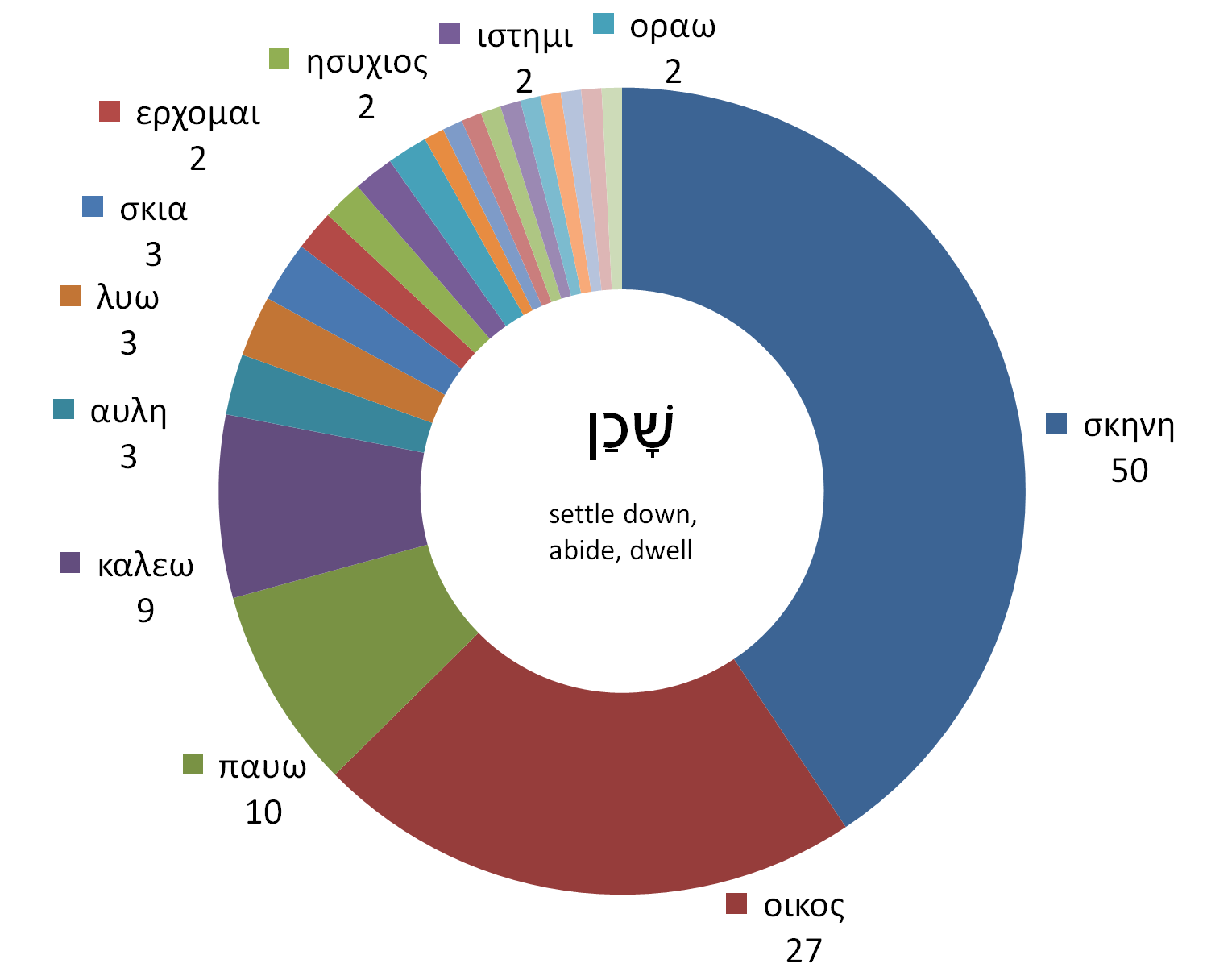Καὶ ὁ λόγος σὰρξ ἐγένετο καὶ ἐσκήνωσεν ἐν ἡμῖν,* καὶ ἐθεασάμεθα τὴν δόξαν αὐτοῦ, δόξαν ὡς μονογενοῦς παρὰ πατρός, πλήρης χάριτος καὶ ἀληθείας. (John 1:14, NA28)
Usually commentators point out that σκηνόω has the idea of dwelling in a tent, and σκηνη is used in the New Testament and LXX for the tabernacle. However, σκηνόω is very similar to the Hebrew word שָׁכַן, (šakan, imperfect waw consecutive וַיִּשְׁכֹּ֤ן, wayiškon) which also means dwell and is also used for Mount Sinai.
The glory of the LORD dwelt on Mount Sinai, and the cloud covered it six days. And on the seventh day he called to Moses out of the midst of the cloud. (Exodus 24:16, ESV)
The context seems to fit John making a parallel to Mount Sinai.
For the law was given through Moses; grace and truth came through Jesus Christ. (John 1:17, ESV)
Here's a chart of the roots of the word in the LXX translating שָׁכַן. Note: most of these roots had the preposition κατα prefixed. The root of ἐσκήνωσεν is predominant.
Translations with other than dwell.
The Word became flesh
and took up residence among us. (HCSV)
The Word became a human being and, ..., lived among us. (GNB)
So the Word became human and made his home among us. (LT)
The Word became a human and lived among us. (NCV)
The Word became flesh and blood,
and moved into the neighborhood. (Message))
And the Word (Christ) became flesh (human, incarnate) and tabernacled (fixed His tent of flesh, lived awhile) among us; (Amp.)
The Word became flesh and tabernacled among us. (ISV)
And the Word became flesh, and did tabernacle among us (YLT)
Many more had "lived."
הַדָּבָר נִהְיָה בָּשָׂר וְשָׁכַן בְּתוֹכֵנוּ; -- ha-Berit ha-ḥadashah. (2000). (John 1:14). Israel: The Bible Society in Israel.
